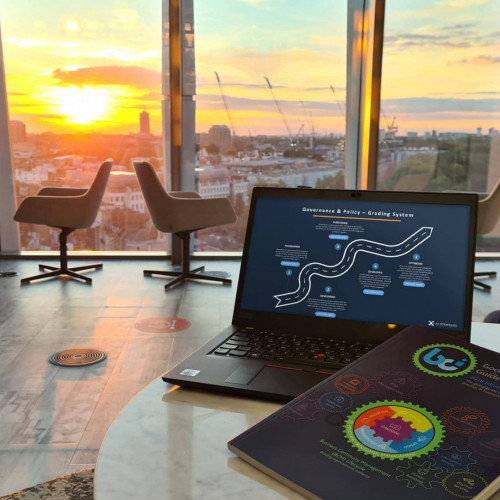How do you practice media management in such an exercise?
Ella: “We build up as real a situation as possible. In this case, a simulated press conference was included in the exercise where we had huge camera spotlights, a TV camera and a journalist doing an introductory announcement and people who played the role of reporters asking critical questions. For that part of the exercise, there were about 40 people in the room, so the entire scenario felt very real.”
It sounds a bit stressful. Do people think it is fun to practice?
Ella: “Most participants do, but it can all become rather intense, especially when we do simulation exercises. One of the aims is to test one’s own mental reaction under stress and how cooperation is affected when we are super-focused and our adrenalin is really pumping. Exercises are a chance to test-drive yourself and your team. During the exercise, you can often go that little bit further than during a real crisis, which gives you the chance to test new working methods or work out the most effective solutions.
When we evaluate afterwards, we can see that many new thoughts, challenges and ideas are generated by a simulation exercise and that those involved often want to practice for a longer period of time.”
We met AMF to hear their thoughts about risk and crisis management, as well as their cooperation with 4C Strategies. Malin Görhammar and Erik Löfgren work as Chief Risk Officer and Chief Communication Officer respectively and are a part of AMF’s crisis management team.
What particular risk challenges are there in your industry?
Malin Görhammar: “There are many different kinds of serious events that can happen, but, like all financial companies, we work in a highly integrated IT environment, so cybersecurity is important. Other than that, maintaining confidence is crucial along with how we work our way through a crisis. It is very important that we have good communication skills if something happens, so that we do not make the crisis worse than it needs to be.”
What is the background to your partnership with 4C Strategies?
Malin: “We got a good impression from references and requested a few bids. We were particularly keen on 4C Strategies’ bid. It felt solid and well prepared. It is the first time we have worked together and we have been very satisfied. 4C Strategies also had a robust training tool [Exonaut] that we wanted to test; it made the exercise very realistic.”
Erik Löfgren: “The conclusion of the crisis exercise, where we simulated a press conference, felt like a smart way of rounding things off and it was an exciting end to the entire exercise.”





